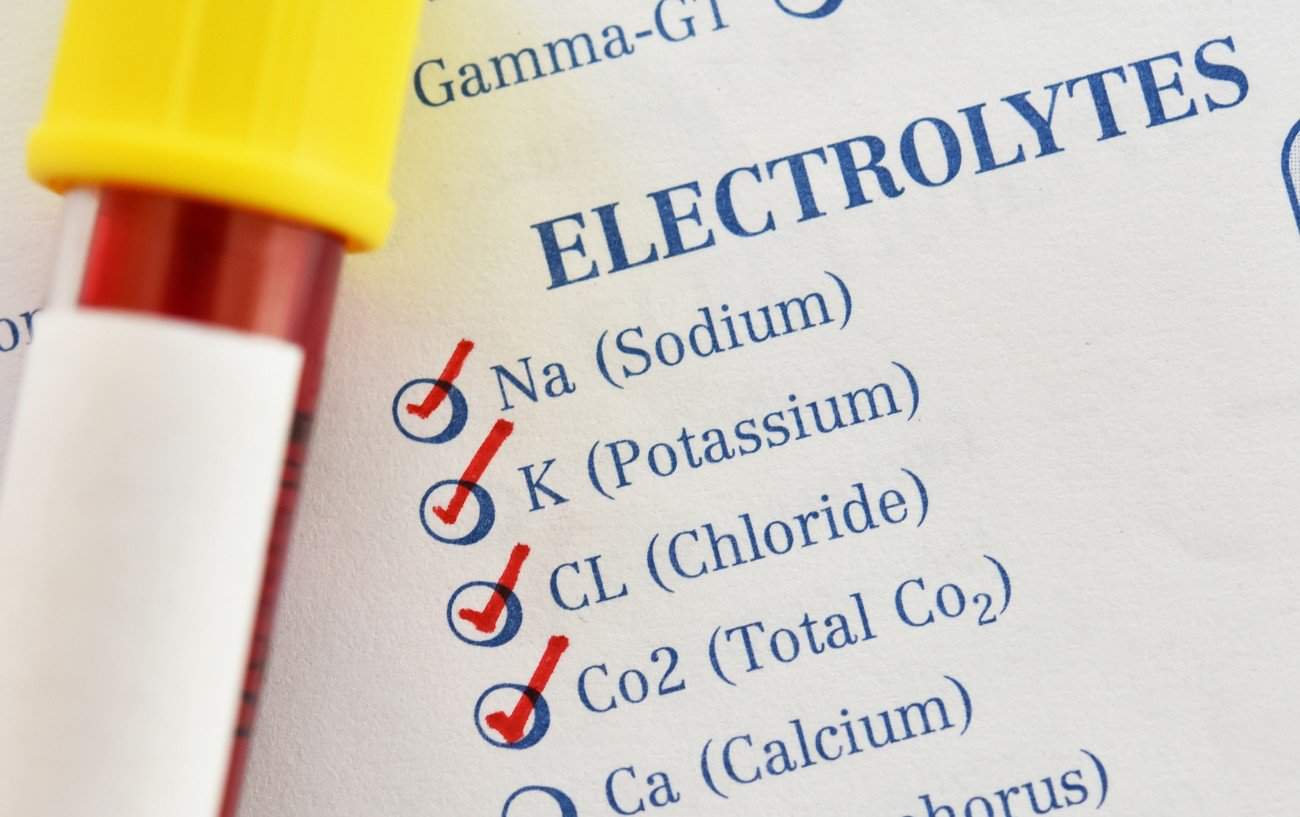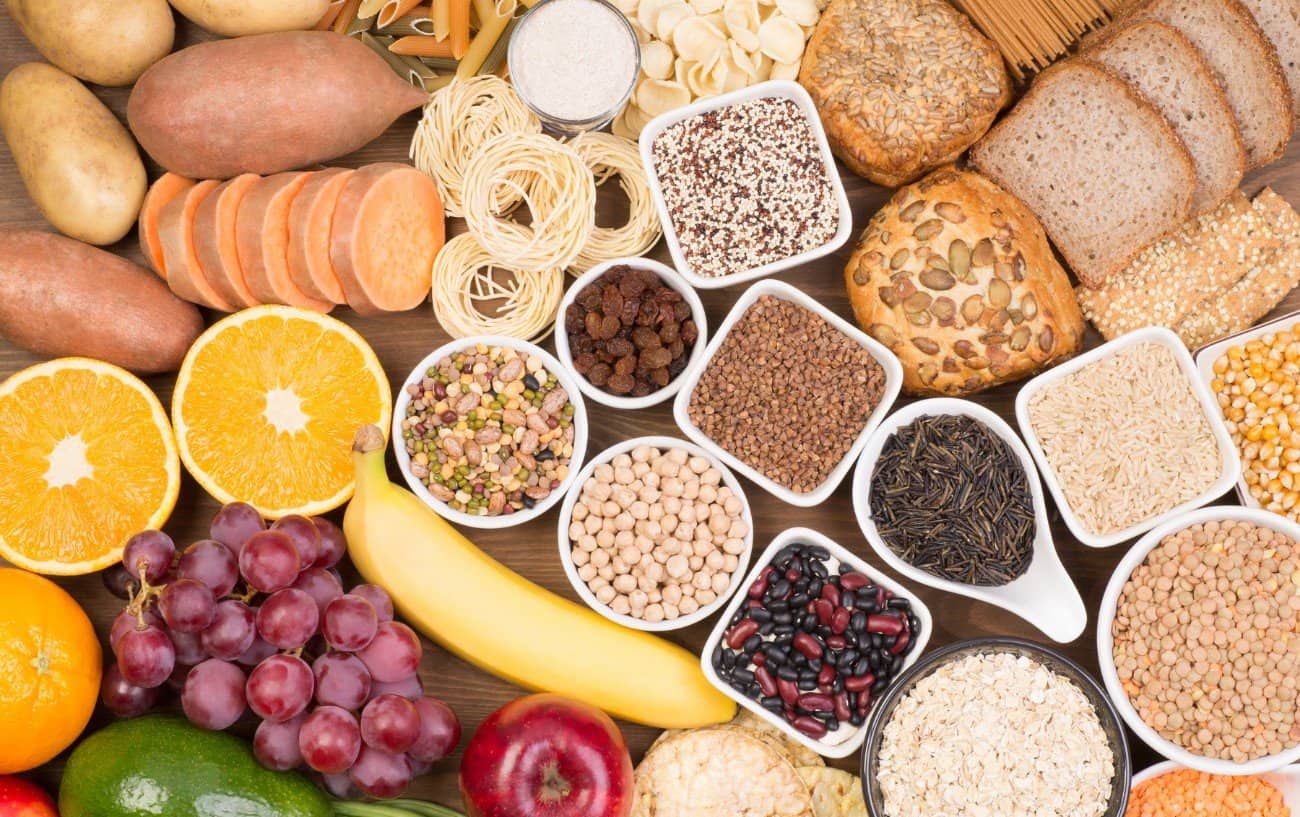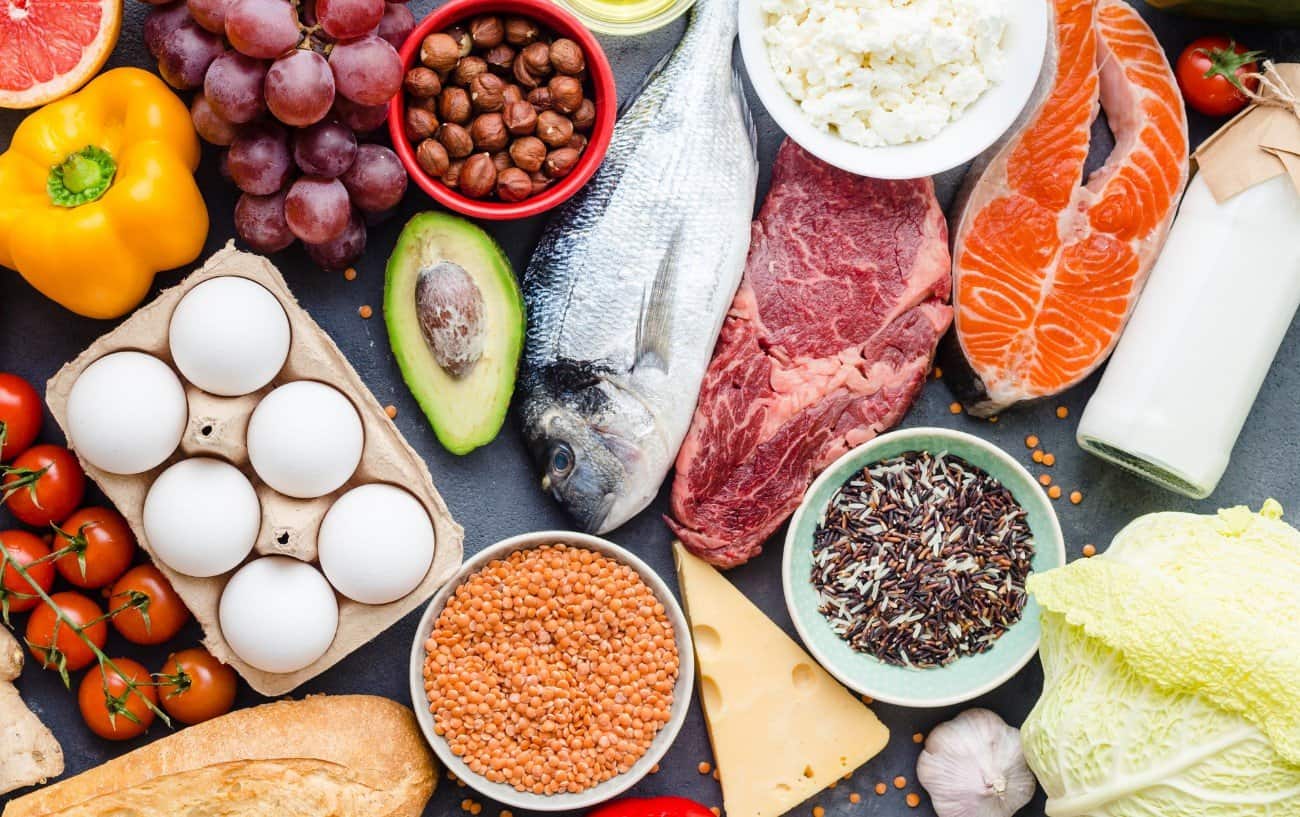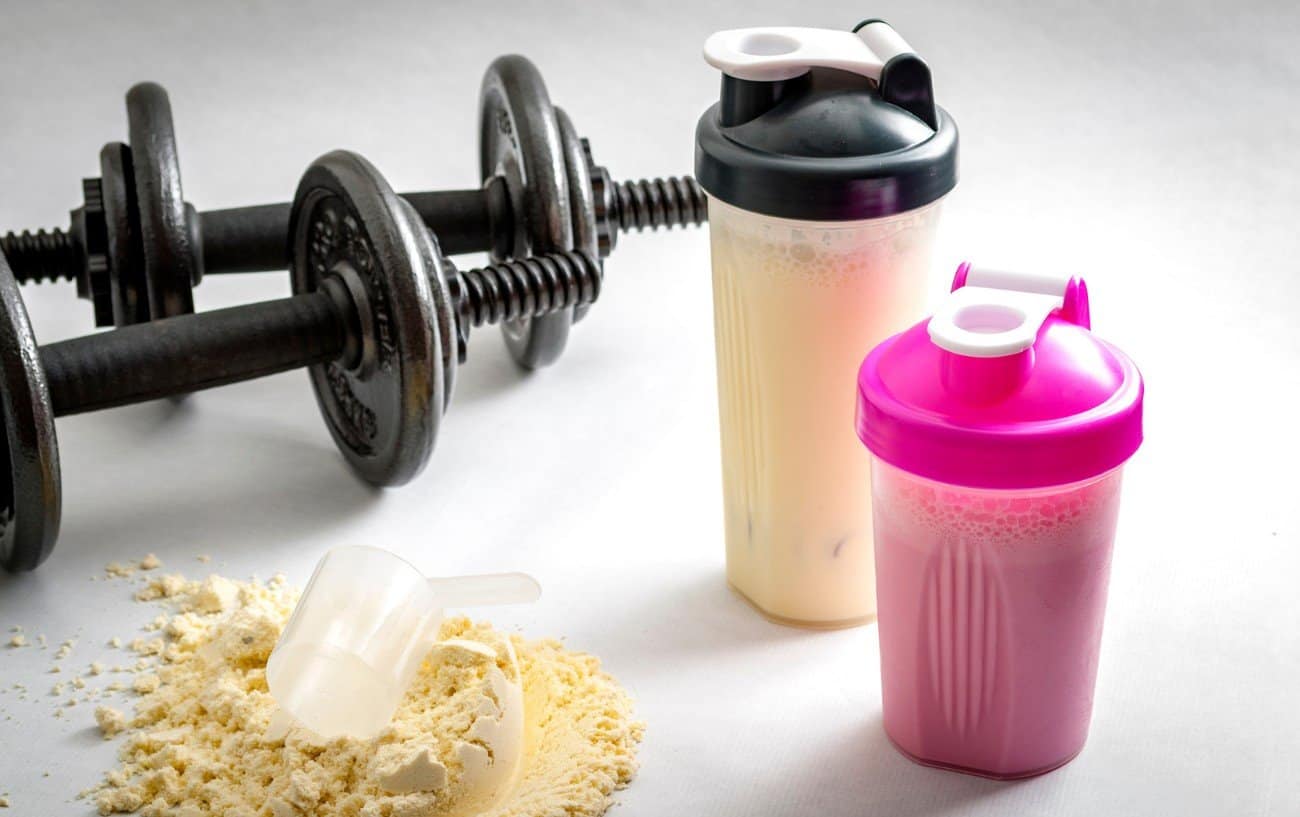Being a runner involves not only hard training but countless other components that we need to incorporate into our daily lives, such as strength training, a good night’s sleep, and physical therapy, just to name a few.
To ensure we are training and racing at our top running performance, we also need to focus on fueling!
The sheer amount of energy we burn daily requires substantial planning and care to ensure excellent performance on and off the race course.
Whether you are a marathon runner, sprinter, or ultrarunner, a healthy diet and good eating habits, along with nutrition and hydration while running, are key to staying strong and being able to train and race hard.
In this guide, we will discuss the importance of fueling, macronutrients, daily hydration, and nutrition for runners and provide you with a sample runner’s meal plan to try.

Most runners focus on what they need to eat and drink before or during their training session or on race day but often overlook the importance of their day-to-day nutrition.
We need fuel to perform and recover. If we don’t provide our body with the energy it needs, it will not only hinder us from reaching our goals but also cause us fatigue, compromise our immune system, and put us at a higher risk of injury.
We don’t want any of that, do we? So let’s learn how to keep our body in tip-top shape and bursting with energy!
Different Runners, Different Needs
Each of us is unique and has different needs. Nutrition and hydration will vary depending on body weight, metabolism, sweat rate, physiological differences, training load, and more.
That said, it is suggested that runners seek professional advice from a sports nutritionist or registered dietitian to receive the most personalized help possible.

How Much Do I Need to Hydrate?
On average, a runner must drink between 2 and 2 ½ liters of fluid daily. This doesn’t just need to be water. It can include other drinks such as juice, tea, soda, sports drinks, or really any liquid you consume; just watch the sugar content to avoid overdoing it.
To reach your total, you can even include caffeinated drinks.
A cup of coffee here and there will add to your total fluid consumption; however, consuming caffeine in excess will have the opposite effect and begin to act as a diuretic, dehydrating you.
Therefore, you want most of your fluid intake to be water and non-caffeinated beverages to ensure healthy hydration.
Do I Need To Replenish Electrolytes?
When we sweat, we not only expel fluid but a fair amount of sodium, chloride, and potassium. Even though we may consume hydration that contains electrolytes during a run, it may not be enough to replenish what has been lost.
There are numerous electrolyte tablets and drinks available that can replenish your losses throughout the day.
Related: Fluid and Electrolytes: A Runner’s Guide
If you feel dizzy or fatigued, you may be at a loss of electrolytes. In this case, try replenishing them with these specific hydration products. Don’t be concerned about consuming more calories as most of these products contain the necessary electrolytes but zero sugar.
Examples include Propel, Nuun, and Hydro-Zero by 226ers.

What Should Runners Eat Everyday?
Each of us trains differently and has different running goals.
Some of us run 20 miles a week, while others run 100. The amount you train and other factors will substantially affect how many calories you need to consume each day.
Seeing a sports nutritionist will help you identify the number of calories you burn daily just by living, your total energy expenditure (TDEE), and then add your specific training load for your grand total.
The most important thing for long-distance runners is that you are fueling enough. If not, you will feel fatigued and heavy during training and unable to perform correctly.
However, if weight loss is your goal, a calorie deficit will be required, but before dieting while training hard, speak with a healthcare professional to ensure you are still consuming a sufficient number of calories.
If you do not have food allergies or sensitivities, you should follow a balanced diet. Your diet plan should include lean proteins, complex carbohydrates, healthy fats, and fruits and veggies.
If you do have trouble with a specific macronutrient, you may need to look for supplements to ensure you are consuming everything you need to stay strong and healthy.
A runner should not deprive themselves of any specific food group, such as carbohydrates or protein, as each has a specific function regarding performance and recovery.
Let’s take a look at what each component contributes to our body in terms of sports nutrition:

What Are Macronutrients?
Macronutrients include carbohydrates, protein, and fat, providing your body with the proper nutrients it needs to function properly.
So, what should a runner’s meal plan include for optimal performance?
Carbohydrates
Carbohydrates are probably the most important macronutrient for runners in terms of performance.1Kanter, M. (2018). High-Quality Carbohydrates and Physical Performance. Nutrition Today, 53(1), 35–39. https://doi.org/10.1097/nt.0000000000000238
When consumed, carbohydrates are converted into glycogen and stored in our muscles and liver. They are then used as energy to fuel our bodies when we exercise. In general, a pretty hefty percentage of a runner’s diet is composed of carbohydrates.
There are a lot of fad diets out there that limit, if not eliminate, carbs entirely from your diet. Sure, you can still run on a diet like that. Still, speedwork and overall performance will not be optimal as energy from sugars is needed by most to perform well.
Carbohydrates include foods such as fruit, starchy vegetables such as sweet potatoes, whole grain bread, white bread, pasta, cereal, white and brown rice, and legumes.
Distance runners must keep those glycogen stores up for full energy.

Protein
Protein is used primarily for muscle recovery and can help increase muscle mass. This is why it is ideal for runners to consume enough protein with recovery or protein shakes soon after a challenging workout, long run, or race in addition to their everyday diet.
Lean protein sources will always be the healthiest choice.
Protein-rich foods include poultry such as chicken and turkey, fish, meat, and eggs. Beans, quinoa, legumes, and some dairy products such as greek yogurt also have protein but contain a substantial percentage of carbohydrates.
Healthy Fats
Another fad diet popular in the 90s was a “no-fat” diet.
Presently, we know that there are health benefits to eating healthy fats and that it should be part of a balanced diet. It’s not the first energy source your body rushes to for use when running, but it is the second!
Healthy fats2Gunnars, K. (2017, June 4). 10 High-Fat Foods That Are Actually Super Healthy. Healthline. https://www.healthline.com/nutrition/10-super-healthy-high-fat-foods#TOC_TITLE_HDR_11 will also aid in cardiovascular health, joint health, and brain function.
Healthy fats include avocados, nuts, seeds, nut butter such as peanut butter, and olive oil.
Try to limit saturated fats.
As we know, every runner will have different needs, but let’s look at an example of the macronutrient daily diet intake percentages.

Day-To-Day Runner’s Meal Plan Example
Runner details:
- Weight: 51 kilos
- Average training load: 80 kilometers of running per week plus two strength training sessions
Daily, this runner consumes:
- Carbohydrates: 35% of total daily fuel
These carbohydrates include a mix of run-of-the-mill carbs such as bread and oatmeal, dairy such as yogurt and milk, and fruit such as berries and bananas.
- Protein: 35% of total daily fuel
- Healthy fats: 15% of total daily fuel
- Vegetables: 15 % total daily fuel
- Hydration: A minimum of 2 liters of fluid per day
This breakdown includes six meals and snacks, from pre-run carb-filled snacks to dinner. However, this is not what a pre-race or pre-long run day would look like, as the carbohydrate load would increase for optimum performance.
You can check out our carb-loading information here.
This is a day-to-day runner’s meal plan; the breakdown above doesn’t include consumption while training. Any training session exceeding one hour consists of an extra carbohydrate consumption of 50g of carbs per hour for this particular runner, (example: 2 sports gels), plus plenty of fluid.

After long runs and intense training sessions, a protein-filled recovery drink is also added. As this doesn’t occur every day, it is not in the day-to-day plan but added by the runner as needed.
Now that we know how the macro percentages are distributed let’s examine some day-to-day meal examples for this runner.
The numbers refer to a “portion” or “portions” of that particular food group. The specific food examples are possible equivalents of said portion(s).
Pre-Run Snack
Eat 1 hour prior to any daily run.
- 1 carbohydrate = ¼ cup oatmeal
- 2 fruits (carbs) = 1 large banana
Breakfast
Post-run
- 2 carbohydrates = 2 slices of toast
- 3 proteins = 2 eggs and 1 ounce of cheese
- 1 healthy fat = ¼ avocado
Mid-Morning Snack
- 1 dairy (carb) = 1 individual-sized yogurt
- 1 healthy fat = 6 almonds
- 1 fruit = 1 cup strawberries

Lunch
- 2 carbohydrates = ⅔ cup of quinoa
- 4 proteins = 4 ounces of salmon
- 2 healthy fats = 1 tablespoon olive oil + ¼ avocado
- 3 vegetables = 1 cup mixed greens salad + 1 cup cooked broccoli
Mid-Afternoon Snack
- 1 carbohydrate = 2 tablespoons granola
- 1 fruit = 1 green apple
- 2 proteins = ½ cup cottage cheese
Dinner
- 2 carbohydrates = 1 cup pasta
- 4 proteins = ½ chicken breast + 2 tablespoon parmesan cheese
- 2 healthy fats = 2 tablespoons olive oil (1 for cooking, 1 for salad dressing)
- 3 vegetables = 1 cup mixed greens salad + 1 cup cooked asparagus

Sticking to a nutritional plan and consuming such a large quantity of fuel may seem overwhelming. Still, the benefits are essential to being a strong, healthy runner.
Take a minute to reflect on how you are currently feeling when you train and throughout the rest of the day. If you feel fatigued, perhaps you aren’t fueling enough and want to restructure your nutrition and hydration.
More energy? Personal bests? Happiness?
If that’s what a balanced runner’s diet will do for me, sign me up!
Looking To Up Your Running Game?
Food is key to marathon training, but so is sleep! Are you sleeping to optimize your running? Check out this article for the low down on sleep for runners:












